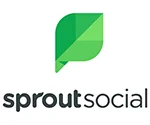 |
| Peter Prodromou |
November 1, 2022—a day that lives in infamy in the PR and marketing professions, among others. In the before-time, we never worried about machines taking our jobs. But with the launch of ChatGPT by Microsoft—and with three subsequent upgrades—we have been treated to an endless stream of fear and despair about its potential to replace skill positions in our professions.
When ChatGPT was launched, I was pejorative in my remarks, calling it a search engine on steroids and a parlor trick. Since then, Microsoft has launched new generations with improvements and Google has launched its Bard chatbot. Both are more than a parlor trick, but I stand by my initial claim that it will be a while before we see these innovations replacing humans in mission critical content creation roles.
It is true that generative AI can write a cogent press release and reasonably decent byline articles. But a cursory review reveals the output for what it is—gathering a series of facts, a la a search engine—and organizing it into cogent paragraphs. The pieces are reasonably good, but lack the nuance and understanding that a human can apply to writing. In my younger days, I had a business partner who was a trained musician. After meetings, we might gather up in a hotel lobby for lunch or a drink. In the course of it, I would comment that the player piano sounded good. He would always correct me. His trained ear could hear the errors. The same applies to current generative AI—it lacks a certain nuance to replace human intelligence and interpretation.
Setting aside the style of writing, there are also questions about accuracy and fact checking. Right now, as we test these technologies, we are closely qualifying outputs to ensure they match the facts. Consider this: are we prepared to simply put these outputs into the wild without quality assurance and fact checking? If the answer is “no,” how then can we be confident about replacing humans with machines. Bard, in particular, is illustrating qualities of machine learning which, over time, may result in total confidence in outputs absent any human interaction and review. But, for the time being, the fact we are bothering to QC the work means we don’t fully trust it.
What I have heard, in travel, speaking engagements and conversations, is that practitioners see the current generation of tools as enhancing productivity through faster, smarter research. Rather than having to rely on conventional search, many are turning to generative AI to aggregate large amounts of data in answer to complex questions that might previously have required several people, different resources and more time to acquire.
There is little doubt the technology is evolving rapidly. I’ve already been solicited by one tech entrepreneur wanting me to beta test his company’s platform. But the reality is, this kind of wholesale replacement is a ways off—if it is to ever occur. Consider the complexities of the clients we work with—healthcare companies, highly regulated financial services groups, complex technology, and more. All require a degree of nuanced thinking and human intelligence as core to the work.
Meanwhile, there are a number of performance-focused AI solutions that don’t pose a threat to our industry, but instead can be leveraged to drive better, faster, more precise results. When we speak of Performance AI, we are thinking in terms of machine learning and language-enabled solutions that can gather massive amounts of data and feed it to us in specific actionable insights. For example: The kinds of conversations occurring around a political issue. The hashtags powering a social discussion about customer satisfaction for a particular company or product. The intensity of passion of conversations around a company’s policies. Employee discussions about issues.
We see the proper focus of AI being on quickly collating and analyzing these terabytes of data and delivering them to humans in small, mission-specific categories that focus on our clients’ business opportunities, marketing and communications goals. Armed with this, we can more easily interpret the data, develop strategies and execute campaigns in the right channels for faster, more precise delivery. The ability to deliver more and better results is the kind of competitive advantage we should be identifying every day in our industry.
I have been in this industry for more than 25 years. Too often we are focused on leveraging new technologies—not on creating value, but on slashing costs. Generative AI and the related buzz is the most recent example of our collective approach to driving down the value of what we deliver by leveraging a technology to replace human beings. It’s a zero sum game that does little to enhance client results and very much to destroy morale and work product.
I am not arguing that we can blindly stand against technology and its inevitability. Rather, I am advising that we, as an industry, focus on things like Performance AI as a means of driving better value through more targeted results. In this context, we should not fear AI but, instead, embrace it, turning the machines to our advantage.
***
Peter Prodromou is president of Boathouse, a Massachusetts-based independent agency co-founded by former Hill Holiday/McCann executive John Connors. He previously spent more than 15 years helping to build and lead Racepoint Global.


 Thanks to advances in AI, social media has now taken a leading role in providing customer support services for brands, with adoption achieving noted fanfare among Gen Z consumers.
Thanks to advances in AI, social media has now taken a leading role in providing customer support services for brands, with adoption achieving noted fanfare among Gen Z consumers. Why universities must offer Communications Engineering degrees in the AI-driven world.
Why universities must offer Communications Engineering degrees in the AI-driven world. The Windy City is bullish on AI, according to a recent survey conducted by the Communications Leaders of Chicago in conjunction with DePaul University’s College of Communication.
The Windy City is bullish on AI, according to a recent survey conducted by the Communications Leaders of Chicago in conjunction with DePaul University’s College of Communication. The emergence of generative artificial intelligence (Gen AI) technology is a curveball that has the potential to significantly disrupt and erode voter trust in the media and governmental leadership.
The emergence of generative artificial intelligence (Gen AI) technology is a curveball that has the potential to significantly disrupt and erode voter trust in the media and governmental leadership. The process of conducting searches is being transformed by generative AI, which is now embedded within search engines such as Bing, Perplexity, and Google's Search Generative Experience.
The process of conducting searches is being transformed by generative AI, which is now embedded within search engines such as Bing, Perplexity, and Google's Search Generative Experience.


 Have a comment? Send it to
Have a comment? Send it to 
May 31, 2023, by Bill Huey
I asked Chat GPT to write a 500-word personal biography and it had me dying in 2010.
I donít think AI is a threat to PR professionals as long as they have some carpentry or plumbing skills on the side. AI will NEVER replace carpenters or plumbers.